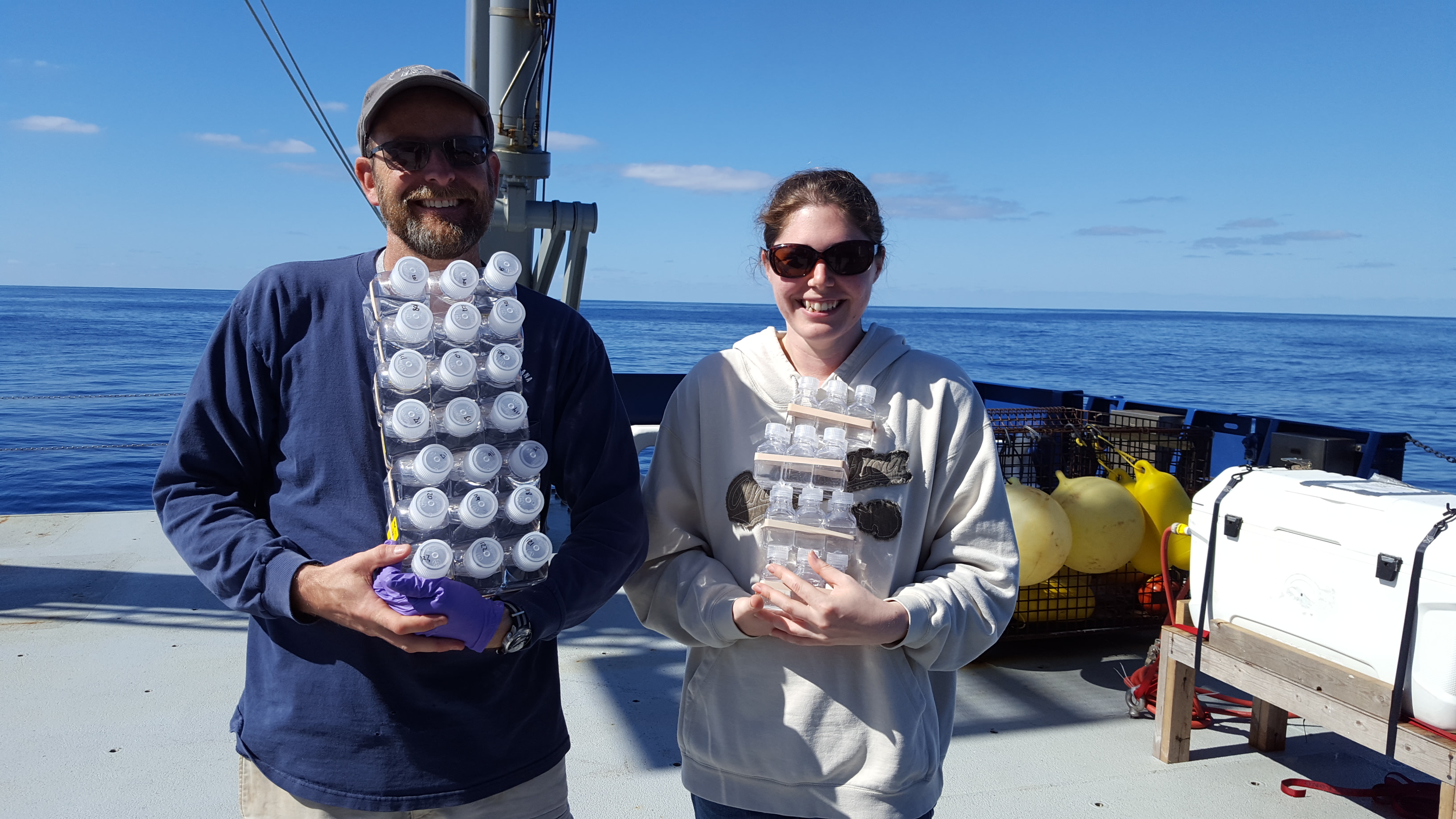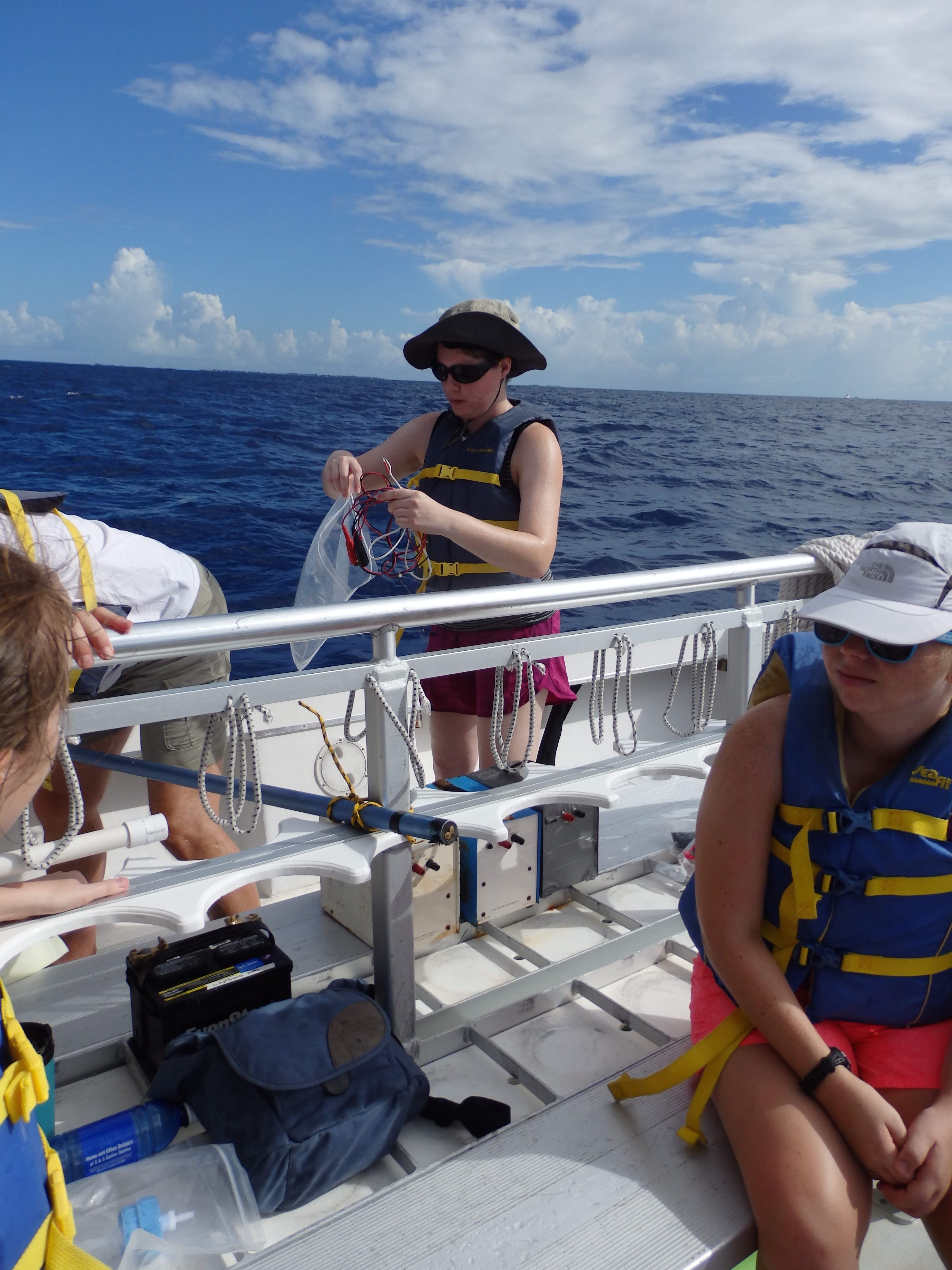
Bottle incubation experiments during the AR16 2017 research cruise. Photo credit: Ben Van Mooy
Current Project: Redox Cycling of Phosphorus in the Western North Atlantic
NSF Abstract: Understanding controls on the growth of plankton in the upper ocean, which plays an essential role in the sequestration of carbon dioxide, is an important endeavor for chemical oceanography. Phosphorus is an essential element for marine plankton, and has been a research focus of chemical oceanography for nearly a century. Yet, phosphorus redox cycling rates are almost completely unknown throughout the ocean, and the specific molecular identities of the phosphonates, a form of phosphate, in seawater have defied elucidation. This project will explore and refine entirely new pathways for the biological cycling of phosphorus.

Setting up surface seawater sampling at Looe Key Marine Sanctuary. Photo credit: Erin Lipp
Past Project: Vibrio as a model microbe for opportunistic heterotrophic response to Saharan dust deposition events in marine waters
NSF Abstract: Dust and mineral aerosols are a significant source of micro and macronutrients to oligotrophic ocean surface waters. Evidence is growing that heterotrophic microbes may play key roles in processing deposited minerals and nutrients. Yet it is not known which components of dust stimulate the heterotrophic bacteria, which cellular mechanisms are responsible for the utilization of those components and how the activity of these bacteria affect the availability and utilization of dust-derived minerals and nutrients by marine autotrophs. Knowledge of these factors is key to understanding how dust deposition impacts carbon cycles and for predicting the response of tropical oceans to future changes in the frequency and intensity of dust deposition events. The objective of this project is to examine the specific effects of aeolian dust on heterotrophic microbes in a tropical marine system under controlled conditions. The central hypothesis is that in oligotrophic tropical systems numerically minor opportunistic bacteria are the first responders to influx of dust constituents and respond primarily by rapidly accessing soluble trace metals and limiting nutrients that are deposited with Saharan dust.